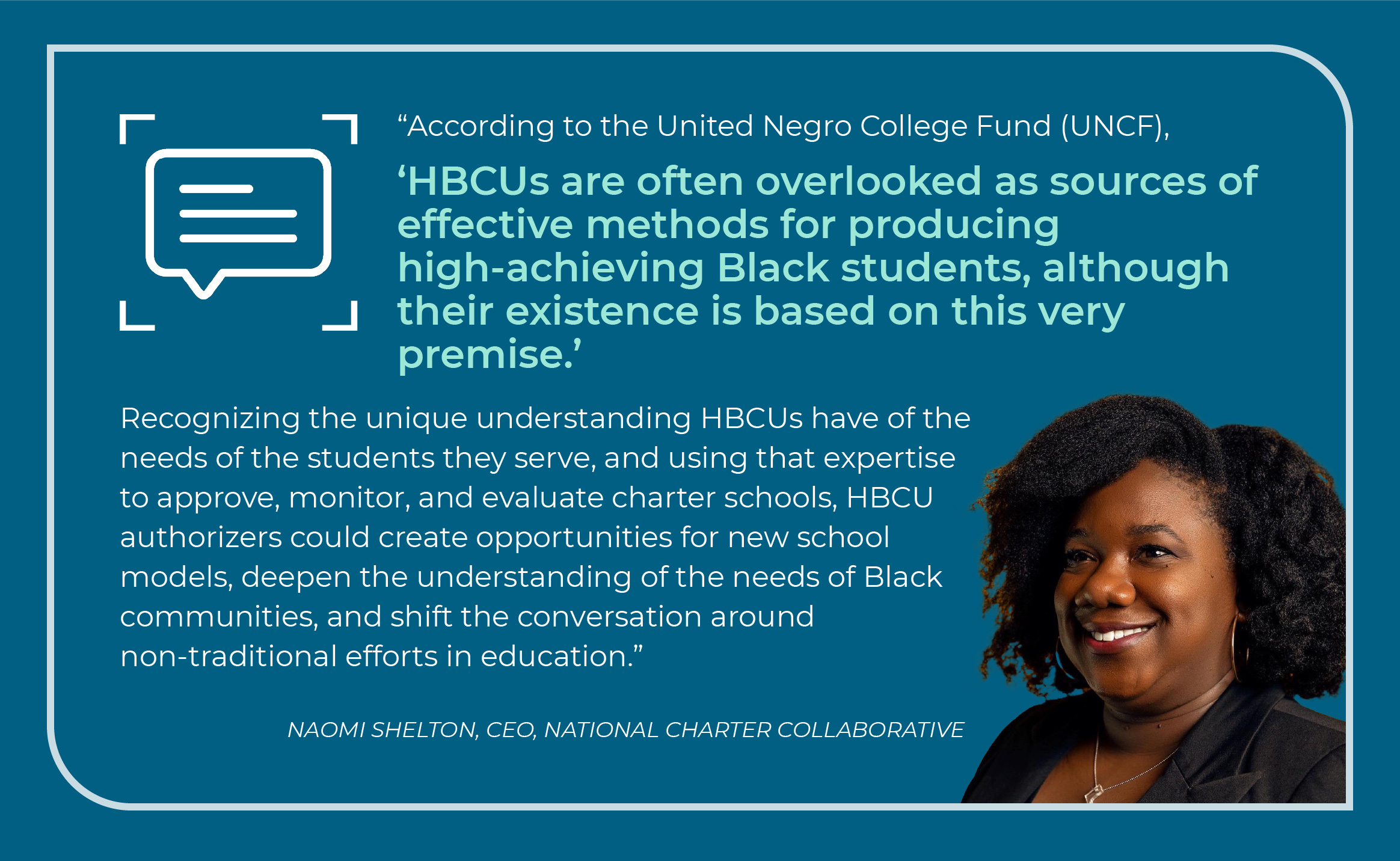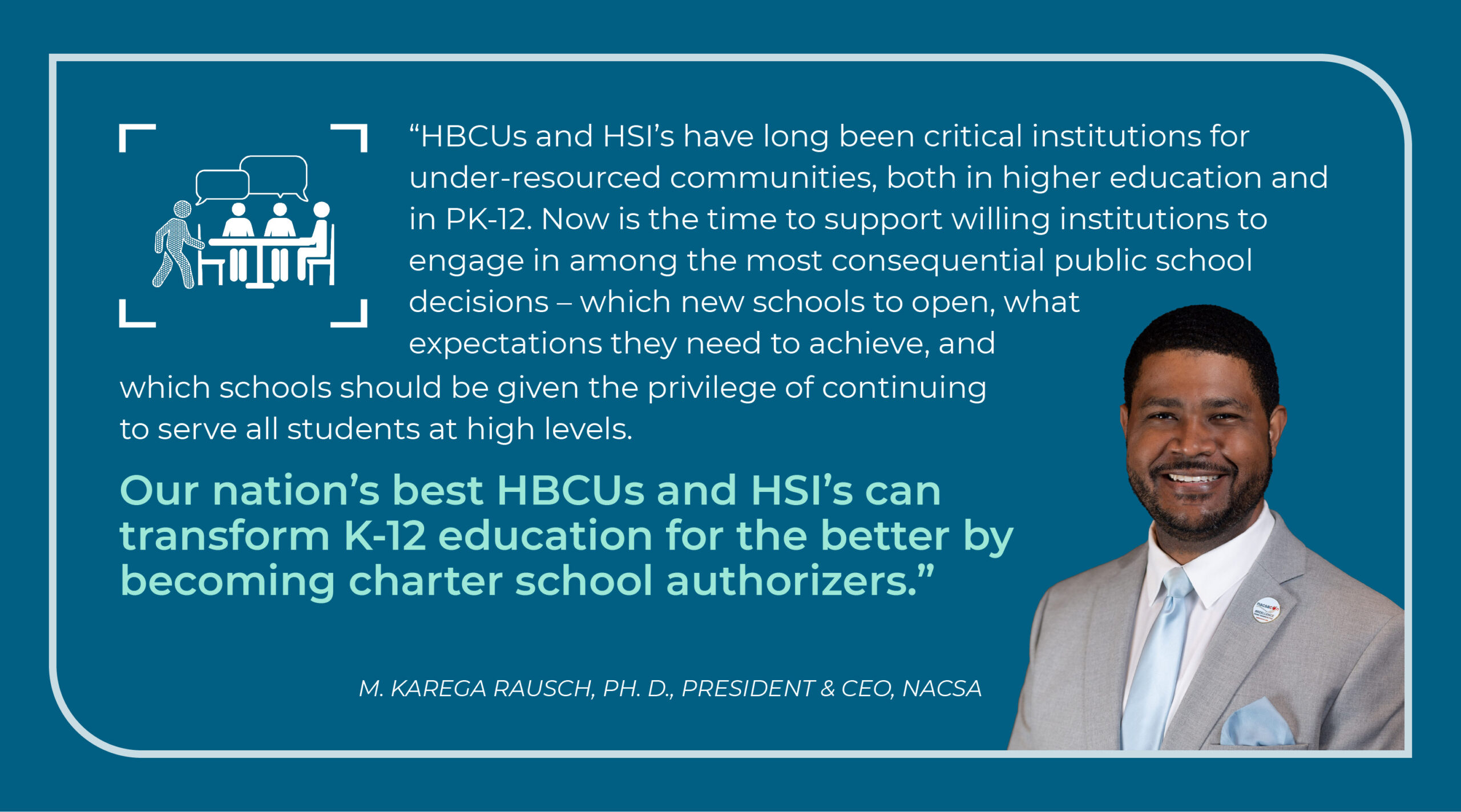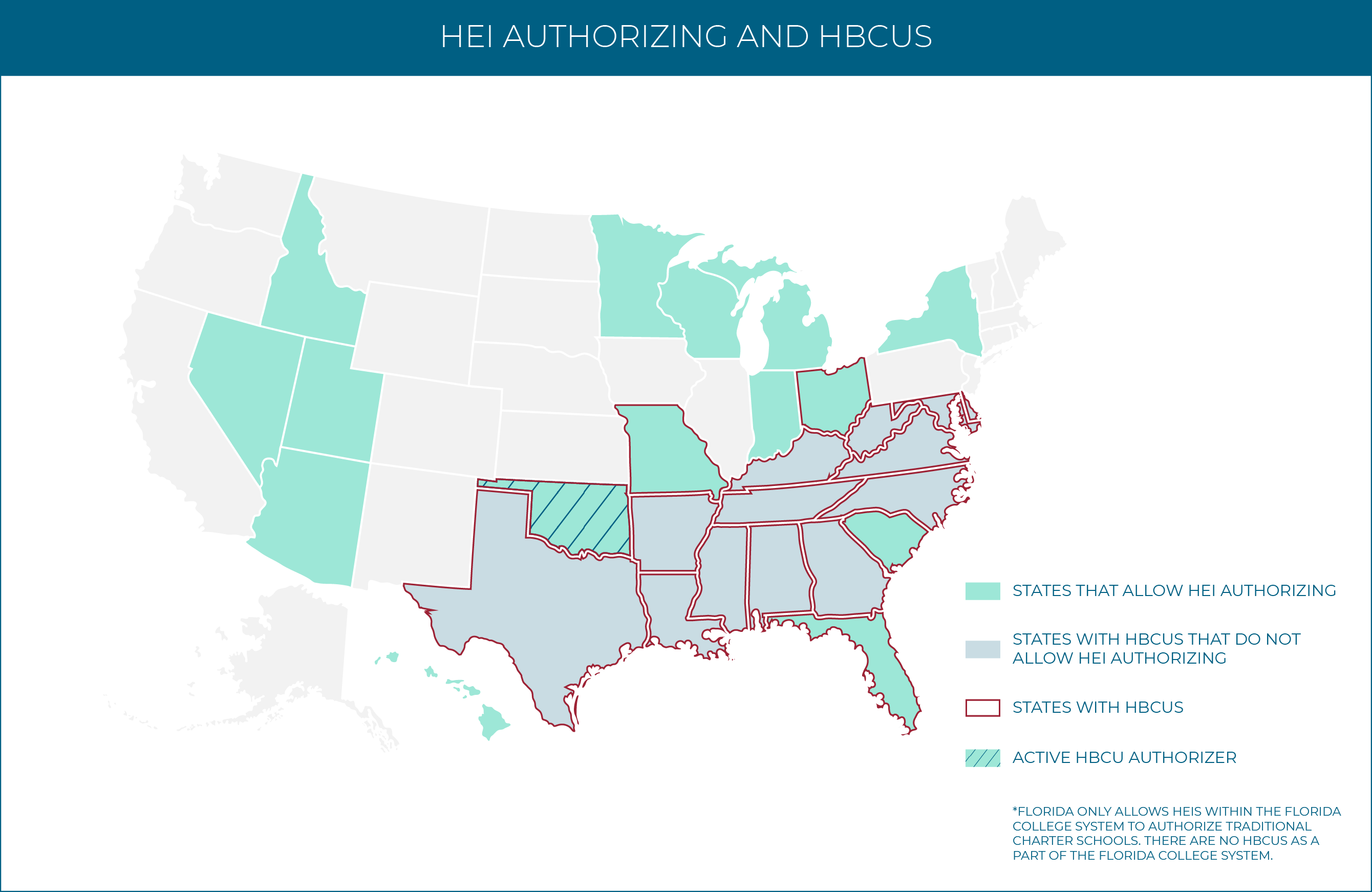In a space known for innovation and serving a diverse array of students and communities, the public charter school sector could benefit from new types of charter authorizers. To date, Historically Black Colleges & Universities (HBCUs) as well as Hispanic-Serving Institutions (HSIs) are potentially untapped sources of expertise in charter school authorizing.
Working closely with communities is a critical component of an authorizer’s role. HBCUs’ track record of success—creating strong and diverse PK-12 teacher pipelines, serving as community beacons, and much more—makes them critical partners in transforming K-12 for all students. This partnership can and potentially should include serving in the governance and oversight role as charter school authorizers.
Research shows that HBCUs consistently outperform their predominantly White institution counterparts when it comes to student experience and preparedness for Black students. This means that HBCUs may be able to bring a level of expertise as a new type of authorizer of K-12 charter schools, to enhance the experience of all students, but especially that of Black children.
Another new type of authorizer? Consider the 361 Hispanic-Serving Institutions (HSIs) of higher education across the nation that have shown their ability to work closely and effectively with historically underserved communities.
With this history of serving historically marginalized communities, HBCUs and HSIs are well-positioned to join other higher education institutions (HEIs) as new types of authorizers that could make a difference for students across the country.


Authorizing and HBCUs and HSIs
- As of 2023, charter school laws in 15 states allow for higher education institutions to be authorizers, but most of those states provide additional constraints on which higher education institutions are currently eligible. For example, New York allows for only one higher education institution authorizer, and names that authorizer in statute (i.e., the State University of New York Trustees). Please see the Appendix of a recent NACSA resource on higher education institution authorizers, here.
- States with the most HBCUs – mostly southern states – do not currently allow for higher education institutions to be authorizers.
- There are currently no HSIs that authorize schools

In a space known for innovation and serving a diverse array of students and communities, the public charter school sector could benefit from new types of charter authorizers.